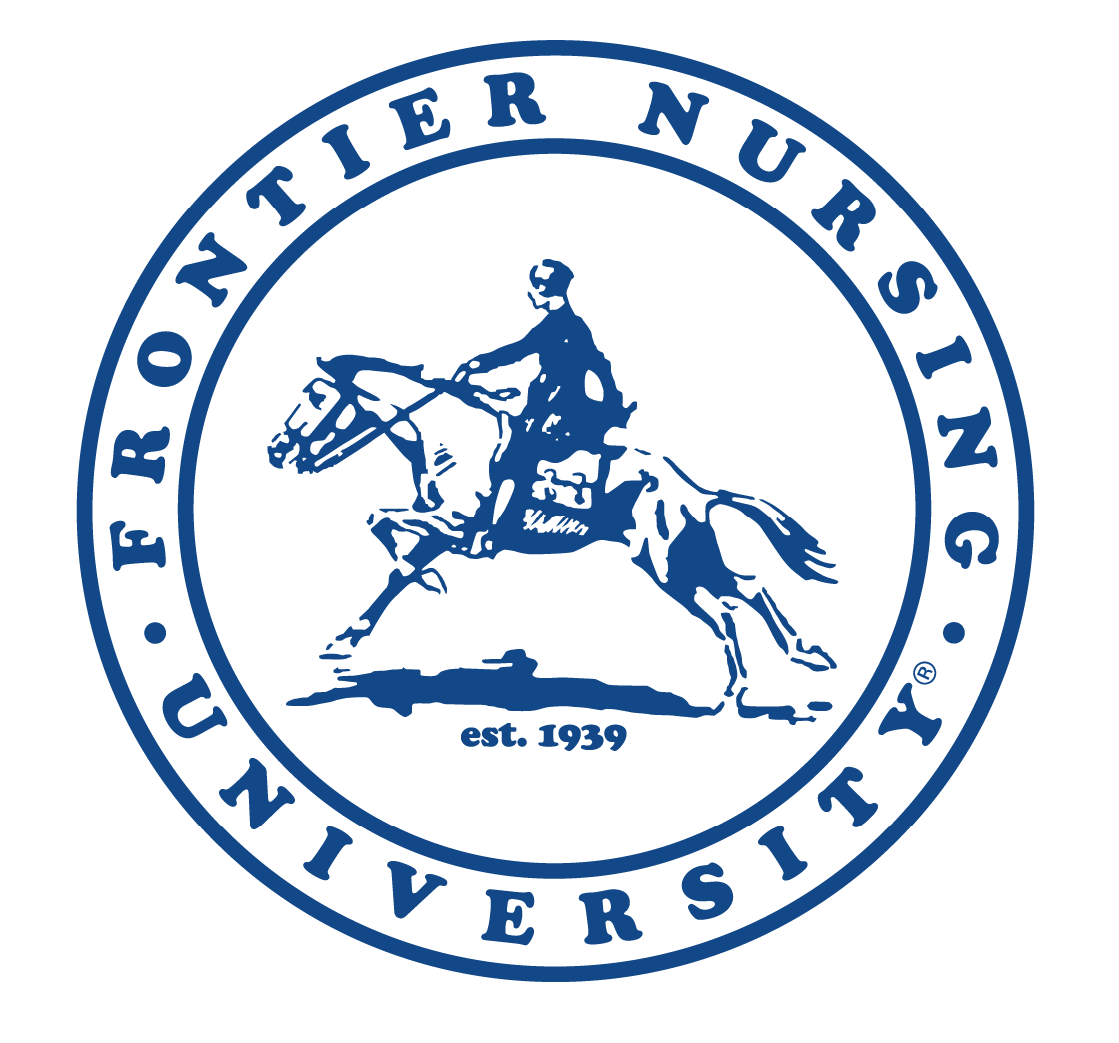 Advanced practice registered nurses (APRNs), which includes nurse practitioners and nurse midwives, play a vital role in expanding access to healthcare, especially in underserved communities. It is important to understand the distinct role and focus of each path when considering which specialty is right for you.
Advanced practice registered nurses (APRNs), which includes nurse practitioners and nurse midwives, play a vital role in expanding access to healthcare, especially in underserved communities. It is important to understand the distinct role and focus of each path when considering which specialty is right for you.
According to the American Association of Nurse Practitioners (AANP), nurse practitioners evaluate patients, diagnose, write prescriptions and bring a comprehensive perspective to health care in nearly 1 billion patient visits each year, providing high-quality care across a wide range of specialties, from family practice to women’s health. In fact, 42% of Medicare patients receive services from a nurse practitioner, and NPs are the fastest growing Medicare designated provider, according to the AANP.
The need for nurse-midwives is also growing. The United States has approximately four midwives employed per 1,000 live births according to the American College of Nurse-Midwives (ACNM). ACNM estimates that at least 22,000 midwives are needed in the midwifery workforce to meet the World Health Organization’s minimum goal of 6 midwives per 1,000 live births.
Frontier Nursing University prepares advanced practice nurses to make a meaningful impact on the lives of diverse and underserved patients. When prospective students reach out to us with enthusiasm for the next step in their careers, one of the most common questions we receive is how to choose the right specialty when pursuing a Master of Science in Nursing (MSN) or Post-Graduate Certificate (PGC) at Frontier. Many students are deciding between our Family Nurse Practitioner (FNP), Certified Nurse-Midwife (CNM), and Women’s Health Care Nurse Practitioner (WHNP) specialties.
Of course, to make an informed decision, it’s important to understand the distinct role and focus of each specialty.
- Family Nurse Practitioner – An FNP is an advanced practice nurse who manages the healthcare of individuals and their families by providing preventive and primary care, promoting health and wellbeing, and helping their patients manage chronic conditions. FNPs conduct routine checkups and assessments, order and interpret tests, make diagnoses, prescribe medications, and initiate and manage treatment plans for their patients.
- Certified Nurse-Midwife – A CNM is a primary health care provider to women of all ages throughout their lives. CNMs focus on gynecologic and family planning services, as well as preconception, pregnancy, childbirth, postpartum and newborn care. They also provide primary care such as conducting annual exams, writing prescriptions, and offering basic nutrition counseling.
- Women’s Health Care Nurse Practitioner – A WHNP is an advanced practice nurse who specializes in continuing and comprehensive health care for women throughout their lives as well as providing sexual and reproductive healthcare to people of all genders. WHNPs provide well-woman care, reproductive and gynecological care, and prenatal and postpartum care. Additionally, WHNPs focus on health promotion and disease prevention.
 For all three specialty programs, FNU students enjoy the flexibility of completing coursework online, attending full or part-time, participating in two brief on-campus immersion experiences, and fulfilling their clinical practicum in their home community. Additionally, students who earn their MSN or PGC have the option to pursue their Doctor of Nursing Practice (DNP) at Frontier afterward.
For all three specialty programs, FNU students enjoy the flexibility of completing coursework online, attending full or part-time, participating in two brief on-campus immersion experiences, and fulfilling their clinical practicum in their home community. Additionally, students who earn their MSN or PGC have the option to pursue their Doctor of Nursing Practice (DNP) at Frontier afterward.
While all three programs combine didactic and clinical learning, there are differences in the structure of each program. For full-time students, the FNP and WHNP specialties take 24 months (eight terms) for the MSN and 18 months (six terms) for the Post-Graduate Certificate (PGC), while the CNM specialty requires 27 months (nine terms) for the MSN and 21 months (seven terms) for the PGC. For part-time students, all three specialties take 36 months (12 terms) for the MSN and 27 months (nine terms) for the PGC.
Ultimately, the choice between these specialties depends on each student’s unique passions, interests, and career goals. However, each program offers its own distinct advantages, making it important for prospective students to consider the benefits of each specialty at FNU.
Family Nurse Practitioner (FNP):
- First FNP Program: Frontier Nursing University began offering the first FNP program in the U.S. in 1970.
- Comprehensive Skill Set: The FNP program has a curriculum that teaches students to be entrepreneurs and healthcare leaders. The curriculum prepares clinicians who are improving healthcare around the country and the world. As a Frontier student, there is opportunity to understand the needs of a community, and learn entrepreneurial skills to be able to start a practice.
- Broad Scope of Practice: FNPs have a broader scope of practice, managing the healthcare of individuals and families across the lifespan.
- Exam Pass Rates: 100% of our family nurse practitioner graduates pass the national certification exam the first time. (ANCC 2024)
 Certified Nurse-Midwife (CNM):
Certified Nurse-Midwife (CNM):
- Oldest and Largest Program: CNM students can attend the oldest and largest continually operating nurse-midwifery education program in the U.S. FNU graduates more than 40% of the nation’s midwives.
- Comprehensive Skill Set: Certified Nurse-Midwives are educated in two disciplines: midwifery and nursing. They earn graduate degrees, complete a midwifery education program accredited by the Accreditation Commission for Midwifery Education (ACME), and are eligible for the national certification examination administered by the American Midwifery Certification Board (AMCB) to receive the professional designation of CNM.
- Expert Faculty: More than 50% of FNU’s 150+ faculty are Certified Nurse-Midwives.
- Exam Pass Rates: 91% of our nurse-midwifery graduates pass the national certification exam the first time. (AMCB 2023)
Women’s Health Care Nurse Practitioner (WHNP):
- Holistic Approach: Our WHNP program is committed to holistically addressing the unique needs of women across their lifespans.
- Prepared for Success: At FNU, WHNP students not only are trained to be a women’s health care nurse practitioner, but also to be an entrepreneur and a leader in the healthcare system.
- Comprehensive Skill Set: FNU’s WHNP specialty equips students with a diverse set of clinical, diagnostic, and therapeutic skills that prepare them to provide expert care to women in a variety of healthcare settings, including primary care, reproductive health, and maternal health. This broad skill set ensures that WHNP graduates are versatile and adaptable in the ever-evolving field of sexual and reproductive healthcare.
- Exam Pass Rates: 96% of our women’s health care nurse practitioner graduates pass the national certification exam the first time. (NCC 2023)
Learn more about degree specialties at FNU. For up-to-date admissions information visit frontier.edu/admissions









 Carrie Belin is an experienced board-certified Family Nurse Practitioner and a graduate of the Johns Hopkins DNP program, Johns Hopkins Bloomberg School of Public Health, Georgetown University School of Nursing, and Johns Hopkins School of Nursing. She has also completed fellowships at Georgetown and the University of California Irvine.
Carrie Belin is an experienced board-certified Family Nurse Practitioner and a graduate of the Johns Hopkins DNP program, Johns Hopkins Bloomberg School of Public Health, Georgetown University School of Nursing, and Johns Hopkins School of Nursing. She has also completed fellowships at Georgetown and the University of California Irvine.












 Angie has been a full-scope midwife since 2009. She has experience in various birth settings including home, hospital, and birth centers. She is committed to integrating the midwifery model of care in the US. She completed her master’s degree in nurse-midwifery at Frontier Nursing University (FNU) and her Doctorate at Johns Hopkins University. She currently serves as the midwifery clinical faculty at FNU. Angie is motivated by the desire to improve the quality of healthcare and has led quality improvement projects on skin-to-skin implementation, labor induction, and improving transfer of care practices between hospital and community midwives. In 2017, she created a short film on skin-to-skin called
Angie has been a full-scope midwife since 2009. She has experience in various birth settings including home, hospital, and birth centers. She is committed to integrating the midwifery model of care in the US. She completed her master’s degree in nurse-midwifery at Frontier Nursing University (FNU) and her Doctorate at Johns Hopkins University. She currently serves as the midwifery clinical faculty at FNU. Angie is motivated by the desire to improve the quality of healthcare and has led quality improvement projects on skin-to-skin implementation, labor induction, and improving transfer of care practices between hospital and community midwives. In 2017, she created a short film on skin-to-skin called 

 Justin C. Daily, BSN, RN, has ten years of experience in nursing. At the start of his nursing career, Justin worked as a floor nurse on the oncology floor at St. Francis. He then spent two years as the Director of Nursing in a small rural Kansas hospital before returning to St. Francis and the oncology unit. He has been in his current position as the Chemo Nurse Educator for the past four years. He earned an Associate in Nurse from Hutchinson Community College and a Bachelor of Science in Nursing from Bethel College.
Justin C. Daily, BSN, RN, has ten years of experience in nursing. At the start of his nursing career, Justin worked as a floor nurse on the oncology floor at St. Francis. He then spent two years as the Director of Nursing in a small rural Kansas hospital before returning to St. Francis and the oncology unit. He has been in his current position as the Chemo Nurse Educator for the past four years. He earned an Associate in Nurse from Hutchinson Community College and a Bachelor of Science in Nursing from Bethel College. Brandy Jackson serves as the Director of Undergraduate Nursing Programs and Assistant Educator at Wichita State University and Co-Director of Access in Nursing. Brandy is a seasoned educator with over 15 years of experience. Before entering academia, Brandy served in Hospital-based leadership and Critical Care Staff nurse roles. Brandy is passionate about equity in nursing education with a focus on individuals with disabilities. Her current research interests include accommodations of nursing students with disabilities in clinical learning environments and breaking down barriers for historically unrepresented individuals to enter the nursing profession. Brandy is also actively engaged in Interprofessional Education development, creating IPE opportunities for faculty and students at Wichita State. Brandy is an active member of Wichita Women for Good and Soroptimist, with the goal to empower women and girls. Brandy is a TeamSTEPPS master trainer. She received the DASIY Award for Extraordinary Nursing Faculty in 2019 at Wichita State University.
Brandy Jackson serves as the Director of Undergraduate Nursing Programs and Assistant Educator at Wichita State University and Co-Director of Access in Nursing. Brandy is a seasoned educator with over 15 years of experience. Before entering academia, Brandy served in Hospital-based leadership and Critical Care Staff nurse roles. Brandy is passionate about equity in nursing education with a focus on individuals with disabilities. Her current research interests include accommodations of nursing students with disabilities in clinical learning environments and breaking down barriers for historically unrepresented individuals to enter the nursing profession. Brandy is also actively engaged in Interprofessional Education development, creating IPE opportunities for faculty and students at Wichita State. Brandy is an active member of Wichita Women for Good and Soroptimist, with the goal to empower women and girls. Brandy is a TeamSTEPPS master trainer. She received the DASIY Award for Extraordinary Nursing Faculty in 2019 at Wichita State University.  Dr. Sabrina Ali Jamal-Eddine is an Arab-disabled queer woman of color with a PhD in Nursing and an interdisciplinary certificate in Disability Ethics from the University of Illinois Chicago (UIC). Dr. Jamal-Eddine’s doctoral research explored spoken word poetry as a form of critical narrative pedagogy to educate nursing students about disability, ableism, and disability justice. Dr. Jamal-Eddine now serves as a Postdoctoral Research Associate in UIC’s Department of Disability and Human Development and serves on the Board of Directors of the National Organization of Nurses with Disabilities (NOND). During her doctoral program, Sabrina served as a Summer Fellow at a residential National Endowment of the Humanities (NEH) Summer Institute at Arizona State University (2023), a summer fellow at Andrew W. Mellon’s National Humanities Without Walls program at University of Michigan (2022), a Summer Research Fellow at UC Berkeley’s Othering & Belonging Institute (2021), and an Illinois Leadership Education in Neurodevelopmental and related Disabilities (LEND) trainee (2019-2020).
Dr. Sabrina Ali Jamal-Eddine is an Arab-disabled queer woman of color with a PhD in Nursing and an interdisciplinary certificate in Disability Ethics from the University of Illinois Chicago (UIC). Dr. Jamal-Eddine’s doctoral research explored spoken word poetry as a form of critical narrative pedagogy to educate nursing students about disability, ableism, and disability justice. Dr. Jamal-Eddine now serves as a Postdoctoral Research Associate in UIC’s Department of Disability and Human Development and serves on the Board of Directors of the National Organization of Nurses with Disabilities (NOND). During her doctoral program, Sabrina served as a Summer Fellow at a residential National Endowment of the Humanities (NEH) Summer Institute at Arizona State University (2023), a summer fellow at Andrew W. Mellon’s National Humanities Without Walls program at University of Michigan (2022), a Summer Research Fellow at UC Berkeley’s Othering & Belonging Institute (2021), and an Illinois Leadership Education in Neurodevelopmental and related Disabilities (LEND) trainee (2019-2020). Vanessa Cameron works for Vanderbilt University Medical Center in Nursing Education & Professional Development. She is also attending George Washington University and progressing towards a PhD in Nursing with an emphasis on ableism in nursing. After becoming disabled in April 2021, Vanessa’s worldview and perspective changed, and a recognition of the ableism present within healthcare and within the culture of nursing was apparent. She has been working since that time to provide educational foundations for nurses about disability and ableism, provide support for fellow disabled nursing colleagues, and advocate for the disabled community within healthcare settings to reduce disparities.
Vanessa Cameron works for Vanderbilt University Medical Center in Nursing Education & Professional Development. She is also attending George Washington University and progressing towards a PhD in Nursing with an emphasis on ableism in nursing. After becoming disabled in April 2021, Vanessa’s worldview and perspective changed, and a recognition of the ableism present within healthcare and within the culture of nursing was apparent. She has been working since that time to provide educational foundations for nurses about disability and ableism, provide support for fellow disabled nursing colleagues, and advocate for the disabled community within healthcare settings to reduce disparities. Dr. Lucinda Canty is a certified nurse-midwife, Associate Professor of Nursing, and Director of the Seedworks Health Equity in Nursing Program at the University of Massachusetts Amherst. She earned a bachelor’s degree in nursing from Columbia University, a master’s degree from Yale University, specializing in nurse-midwifery, and a PhD from the University of Connecticut. Dr. Canty has provided reproductive health care for over 29 years. Her research interests include the prevention of maternal mortality and severe maternal morbidity, reducing racial and ethnic health disparities in reproductive health, promoting diversity in nursing, and eliminating racism in nursing and midwifery.
Dr. Lucinda Canty is a certified nurse-midwife, Associate Professor of Nursing, and Director of the Seedworks Health Equity in Nursing Program at the University of Massachusetts Amherst. She earned a bachelor’s degree in nursing from Columbia University, a master’s degree from Yale University, specializing in nurse-midwifery, and a PhD from the University of Connecticut. Dr. Canty has provided reproductive health care for over 29 years. Her research interests include the prevention of maternal mortality and severe maternal morbidity, reducing racial and ethnic health disparities in reproductive health, promoting diversity in nursing, and eliminating racism in nursing and midwifery. Dr. Lisa Meeks is a distinguished scholar and leader whose unwavering commitment to inclusivity and excellence has significantly influenced the landscape of health professions education and accessibility. She is the founder and executive director of the DocsWithDisabilities Initiative and holds appointments as an Associate Professor in the Departments of Learning Health Sciences and Family Medicine at the University of Michigan.
Dr. Lisa Meeks is a distinguished scholar and leader whose unwavering commitment to inclusivity and excellence has significantly influenced the landscape of health professions education and accessibility. She is the founder and executive director of the DocsWithDisabilities Initiative and holds appointments as an Associate Professor in the Departments of Learning Health Sciences and Family Medicine at the University of Michigan. Dr. Nikia Grayson, DNP, MSN, MPH, MA, CNM, FNP-C, FACNM (she/her) is a trailblazing force in reproductive justice, blending her expertise as a public health activist, anthropologist, and family nurse-midwife to champion the rights and health of underserved communities. Graduating with distinction from Howard University, Nikia holds a bachelor’s degree in communications and a master’s degree in public health. Her academic journey also led her to the University of Memphis, where she earned a master’s in medical anthropology, and the University of Tennessee, where she achieved both a master’s in nursing and a doctorate in nursing practice. Complementing her extensive education, she completed a post-master’s certificate in midwifery at Frontier Nursing University.
Dr. Nikia Grayson, DNP, MSN, MPH, MA, CNM, FNP-C, FACNM (she/her) is a trailblazing force in reproductive justice, blending her expertise as a public health activist, anthropologist, and family nurse-midwife to champion the rights and health of underserved communities. Graduating with distinction from Howard University, Nikia holds a bachelor’s degree in communications and a master’s degree in public health. Her academic journey also led her to the University of Memphis, where she earned a master’s in medical anthropology, and the University of Tennessee, where she achieved both a master’s in nursing and a doctorate in nursing practice. Complementing her extensive education, she completed a post-master’s certificate in midwifery at Frontier Nursing University.









 Dr. Tia Brown McNair is the Vice President in the Office of Diversity, Equity, and Student Success and Executive Director for the Truth, Racial Healing, and Transformation (TRHT) Campus Centers at the American Association of Colleges and Universities (AAC&U) in Washington, DC. She oversees both funded projects and AAC&U’s continuing programs on equity, inclusive excellence, high-impact practices, and student success. McNair directs AAC&U’s Summer Institutes on High-Impact Practices and Student Success, and TRHT Campus Centers and serves as the project director for several AAC&U initiatives, including the development of a TRHT-focused campus climate toolkit. She is the lead author of From Equity Talk to Equity Walk: Expanding Practitioner Knowledge for Racial Justice in Higher Education (January 2020) and Becoming a Student-Ready College: A New Culture of Leadership for Student Success (July 2016 and August 2022 Second edition).
Dr. Tia Brown McNair is the Vice President in the Office of Diversity, Equity, and Student Success and Executive Director for the Truth, Racial Healing, and Transformation (TRHT) Campus Centers at the American Association of Colleges and Universities (AAC&U) in Washington, DC. She oversees both funded projects and AAC&U’s continuing programs on equity, inclusive excellence, high-impact practices, and student success. McNair directs AAC&U’s Summer Institutes on High-Impact Practices and Student Success, and TRHT Campus Centers and serves as the project director for several AAC&U initiatives, including the development of a TRHT-focused campus climate toolkit. She is the lead author of From Equity Talk to Equity Walk: Expanding Practitioner Knowledge for Racial Justice in Higher Education (January 2020) and Becoming a Student-Ready College: A New Culture of Leadership for Student Success (July 2016 and August 2022 Second edition).